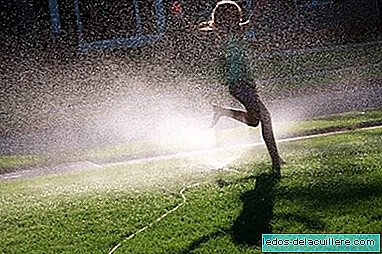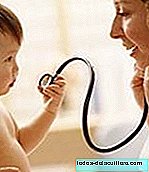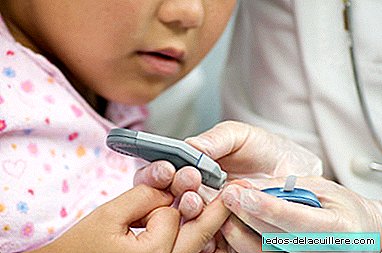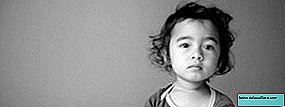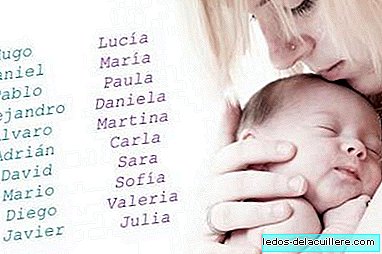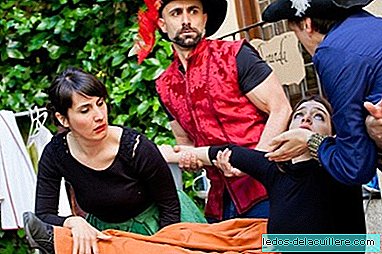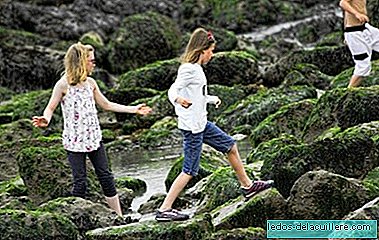
In 1996, the International Commission for Education, chaired by Jaques Delors, presented a report to UNESCO, establishing what should be the pillars of the Education in the 21st century. I think we should review these pillars because they can serve as a guide in such a changing society, in which (sometimes) families and schools do not know where to place ourselves and what role to play in the educational process of our children.
"Education is forced to provide the nautical charts of a complex and perpetual turmoil and, at the same time, the compass to navigate it"Let us remember this phrase as if we had it etched on fire, and we believe in it, why? Because most of the information that comes to them (or that they access) our children are ephemeral and have no use. And but nevertheless the basis of the competences of the future are the large amount of theoretical and technical knowledge that children acquire throughout their lives. The world is changing, the "knowledge" can be unstable, but people must have more and more capacity to adapt. I believe that the ability to adapt and the need to move forward are linked to our species, but children need their evolution to be supported by firm foundations that provide the social structures with which it relates (family and school mainly).
What are the four fundamental lessons that children will need?
In the mentioned report, Mr. Delors talks about instruments of understanding, of influencing the environment, of participation and cooperation, ... Among all the paths (or pillars) of knowledge there are multiple points of contact, coincidence and exchange. Everyone should receive balanced attention so that education is a global experience that lasts for a lifetime, however it is not so; and most likely fathers and mothers will see ourselves in the obligation to build the pillars that are not worked from school, or to transmit to the educational institutions, the convenience of a joint work.
Because the education from the School, continues being oriented so that the students "learn to know", and to a lesser extent "learn to do", what happens then with the other ways?
A new broader conception of education should lead each person to discover, awaken and increase their creative possibilities, thus updating the hidden treasure in each of us, which implies transcending a purely instrumental vision of education, perceived as the way obliged to obtain certain results (practical experience, acquisition of diverse capacities, economic purposes), to consider its function in its fullness, namely the realization of the person who, all of it, learn to be
I am very afraid that the good intentions of the Commission have encountered a hard nut to crack: in industrialized countries education equals production, student is equal to accumulation of stored knowledge. Are we in time to help children learn to be?
Learn to know
This type of learning can be medium if it is understood that each person can learn to understand the world around them, and end if there is a pleasure to understand or discover.
However, since knowledge is multiple and infinitely evolutionary, it is increasingly utopian to pretend to know everything; Therefore, beyond basic education, the idea of omniscient knowledge is illusory. At the same time, specialization ⎯ even in the case of future researchers ⎯ should not exclude a general culture
"It is essential that every child, wherever he is, can properly access scientific reasoning and become a 'friend of science' for a lifetime at secondary and higher levels of education, Initial training to provide all students with the instruments, concepts and reference modes resulting from scientific progress and the paradigms of the time '.
To learn to do

This path of knowledge can hardly be separated from the previous one, although it is more linked to the skills that in the future will allow students to develop a profession. Because children must know how to adapt the lessons received to the future labor market, which is not expected at all.
On the other hand, the meaning of "learning to do" is no longer as simple as when in the past someone was preparing for a specific task in an industry or commerce; Today the know-how is no longer "mere transmission of more or less routine practices", since the academic and work world is constantly evolving.
Before we called it qualification and now competition
Increasingly, employers value people's skills as a whole, these (skills) combine social behavior, the ability to take initiatives / take risks and the qualification that the person acquires through technical and professional training. It is considered that greeting workers should "know how to be" and resolve conflicts. Difficult task of the educators and parents of today's children?It can, but it is also stimulating.
Learn to live together, to live with others
Today we have the opportunity to communicate and share with members of different ethnic and cultural groups, the school is a reflection of this reality; and not only that, but in contexts of equality, it is easier to achieve the intrinsic objectives of coexistence, promoting serene cooperation and friendship. Therefore, the school should reflect on competitiveness in the classroom, to balance the balance on the side of conflict resolution.
Because in the future, children will be adults and may have to participate in common projects with people other than them

Learn to be
We have reached the heart of the matter: because every person should have autonomous and critical thinking, in addition to being able to make their own judgments to to determine without external influences what to do in the different circumstances of life.
The problem will no longer be to prepare children to live in a given society but, rather, provide each one with permanent intellectual strengths and reference points that allow you to understand the world around you and behave as a responsible and fair element. Autonomous thinking seems a form of self-defense against an alienating system, but instead it can become the opportunity for societies to progress, because it unleashes creativity and innovation.
And now tell me, do you realize the importance that the family has in the consolidation of the four pillars of education that children need? It may be that the school has a dominant role in learning to know and learn to do (It can only), but of course, I find it indisputable that parents should contribute their grain of sand so that children learn to live together (transmitting values), and learn to be (educating from the family so that they feel safe in the lifetime.
How? taking advantage of the different educational moments that family life gives us, bringing them closer to culture, transmitting experiences, helping them to value alternatives, getting involved in educational processes, ... in short, being present in their lives while childhood lasts. Afterwards, they will take the reins.
While formal education systems tend to prioritize the acquisition of knowledge, to the detriment of other forms of learning, it is important to conceive education as a whole. In that conception, educational reforms should be sought and inspired, in the elaboration of programs and in the definition of new pedagogical policies
Images | Steve Slater, U.S. Army RDECOM, Brad Flickinger Via | Social Sciences Today In Peques and More | Why do Spanish students fall below OECD countries? Education today cannot be competitive: children need to meet and live together, parents' abilities to influence school success: interest for children's studies and active involvement



